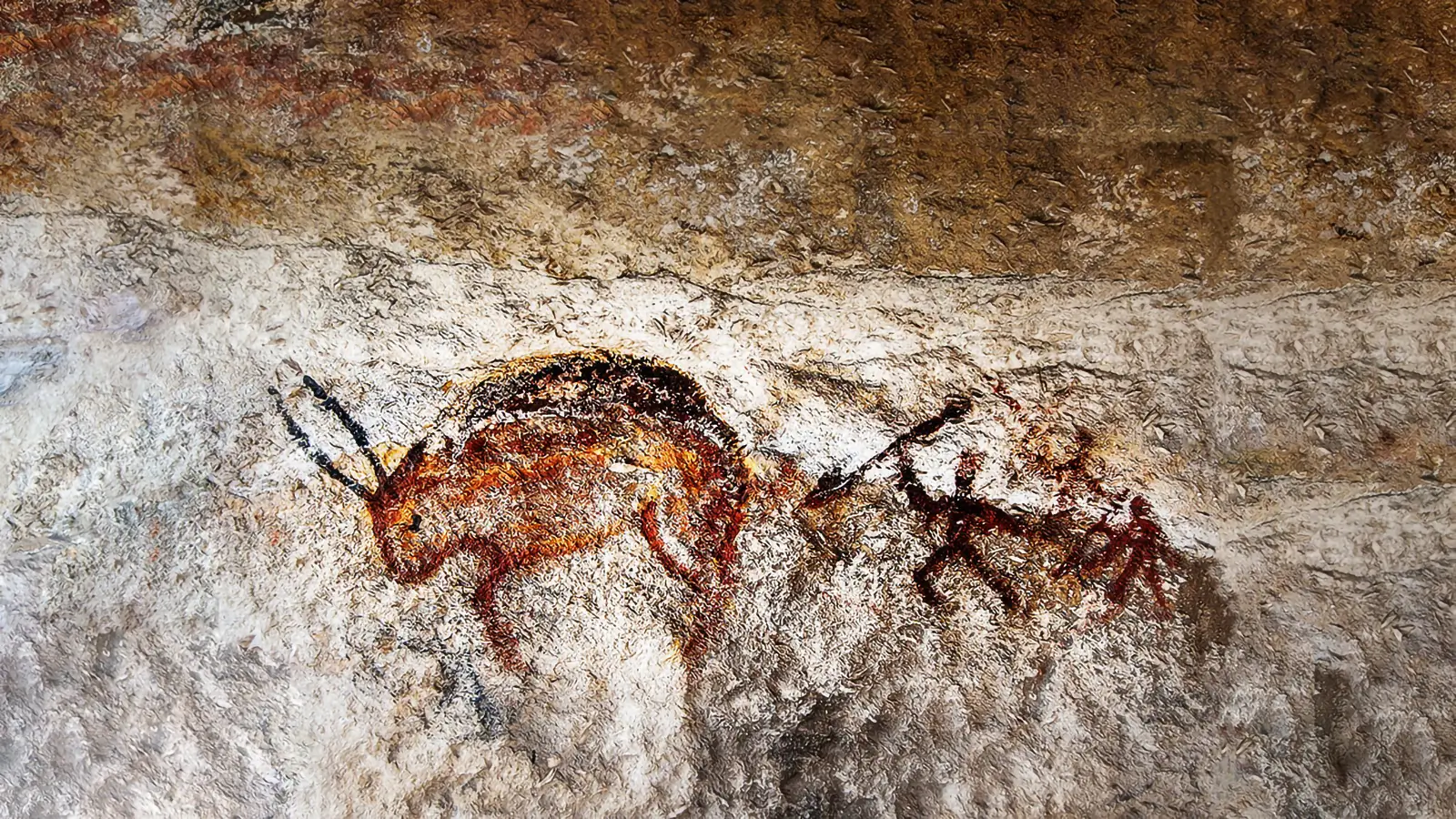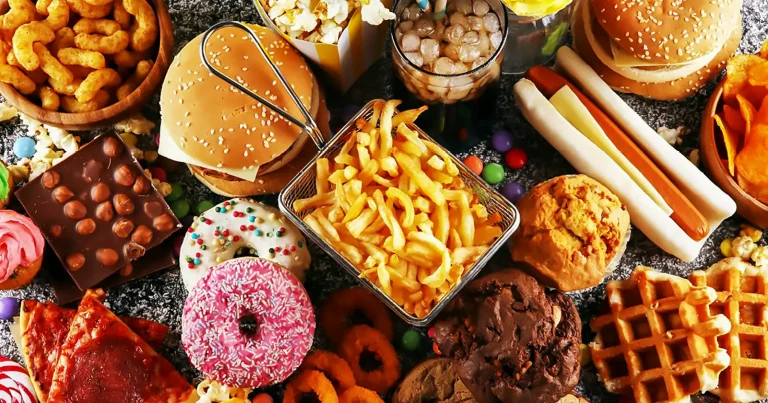Dieta mediterrânica- "Maravilha" de azeite de oliva
Comercializado como uma maravilha de azeite, a dieta Mediterrânea não tinha nada a ver com qualquer óleo de qualquer tipo, exceto na medida em que ele pode substituir a manteiga e a banha.
Milos Pokimica
Escrito por: Milos Pokimica
Revisto Clinicamente Por: Dr. Xiùying Wáng, M.D.
Actualizado em 9 de Junho de 2023A boa e velha dieta mediterrânica saudável. Comercializada como uma maravilha do azeite que não tem nada a ver com qualquer tipo de azeite, excepto na medida em que pode substituir escolhas ainda piores, como uma gordura saturada normal, como a manteiga e a banha. Foi precisamente assim que até o pai da dieta mediterrânica a viu (Chaves, 1987). Quando se vai ao pubmed.gov e se procura uma dieta mediterrânica, há cerca de 5000 resultados. A dieta mediterrânica é constituída por muitas dietas em muitos países diferentes. Pode ser marroquina, grega, espanhola, italiana ou de qualquer outro país.
Contudo, quando falamos da dieta mediterrânica, o que está implícito é a dieta na ilha de Creta na era pós Segunda Guerra Mundial. Além disso, o que vem a seguir é uma grande questão: Porque é que as doenças cardíacas eram raras no Mediterrâneo? Ou seja, na ilha de Creta, após a Segunda Guerra Mundial.
Em 1948, após a guerra e o colapso socioeconómico, o governo da Grécia estava preocupado com a desnutrição e o estado de saúde dos seus cidadãos. Decidiram convidar a Fundação Rockefeller com o objetivo de realizar um estudo epidemiológico na ilha de Creta. Em 1952, impressionado com as baixas taxas de doenças cardíacas, Ancel Keys, o mesmo cientista responsável pelo Experimento de Inanição de Minnesota, observou a conexão entre gordura, especialmente gordura saturada, e doenças cardíacas após pesquisar os dados. Embora naquela época ele não visse o colesterol como o problema, pois isso significaria que os produtos de origem animal eram os culpados. A conexão entre gordura alimentar e doenças cardíacas foi observada ainda antes, na década de 1930, e influenciou o trabalho de Keys, mas os dados de Creta o levaram a escrever um artigo sobre o assunto em 1953 e a fazer discursos públicos. O famoso Estudo dos Sete Países começou cinco anos depois, em 1958, para investigar as preocupações de Keys (www.sevencountriesstudy.com). Na década de 1960 era uma crença comum que a gordura saturada contribui para as doenças cardíacas. A Dieta das pessoas na ilha de Creta foi um catalisador para esta investigação mais tarde. Em 1970 foi apresentado, pela primeira vez, o Estudo dos Sete Países. Agora Keys viveu até aos 100 e na altura não era muito dos radicais como as confusões de colesterol gostariam que acreditasse. Recomendava comer menos gordura, ou seja, gordura na carne e gordura em geral, como ovos (ou pelo menos gemas) e produtos lácteos, e em vez de comer mais peixe e galinha. Considerava que as frutas e legumes eram apenas alimentos complementares, e tinha um colesterol de cerca de 200. Esse número não é saudável de longe, mas ele viveu até 100. O problema era que ele era um médico do mesmo sistema que qualquer outro médico. A arteriosclerose não acontece normalmente numa idade como as confusões de colesterol gostariam que acreditássemos, devido a todo o fluxo de sangue stressante.
A arteriosclerose é uma doença, não um processo de envelhecimento. Podemos ir observar as artérias e medir a pressão arterial de pessoas pobres em locais como Creta. Keys não percebeu a verdadeira realidade sobre a dieta real em Creta. Ele pensava que era apenas gordura e não via problema algum nas proteínas animais. Animais correlação de proteínas foi negligenciado mesmo nos gráficos. Ele baralhou a água, apontando apenas para a gordura.
No entanto, nem isso era suficiente. Mesmo isso era exagerado. Em 1966, George Campbell e Thomas L. Cleave publicaram "Diabetes, Trombose Coronária e Doença da Sacarina". Argumentavam que as doenças crónicas ocidentais, como as doenças cardíacas, as úlceras pépticas, a diabetes e a obesidade, eram produzidas por uma coisa: "A doença dos hidratos de carbono refinados". Era uma história interminável. Nunca parou até hoje. Tudo é uma mentira que é confrontada com a mentira oposta. Guerras de dietas e confusão criadas artificialmente. Foi uma boa estratégia de design que não mudou nada em 70 anos, excepto o facto de ter enredado pessoas normais em dinheiro causador de doenças, criando um ciclo maléfico de miséria. Mesmo nos tempos actuais, é a mesma velha história de manipulação. Em 2001, por exemplo, no artigo da revista Science intitulado "Nutrition: The Soft Science of Dietary Fat", Gary Taubes escreveu:
“Ainda é uma questão discutível se o consumo de gorduras saturadas acima dos níveis recomendados por qualquer pessoa que ainda não esteja em alto risco de doença cardíaca aumentará a probabilidade de morte prematura... ou se centenas de milhões de dólares em ensaios clínicos conseguiram gerar evidências convincentes de que indivíduos saudáveis podem prolongar suas vidas em mais do que algumas semanas, se tanto, comendo menos gordura.”
Setenta anos depois, as pessoas pensam que a dieta mediterrânica é saudável por causa do azeite. Este é um excelente exemplo de uma meia verdade. Os restaurantes italianos promovem-se como uma cozinha mediterrânica saudável, com esparguete à carbonara e álcool. A taxa de mortalidade por doenças cardíacas em Creta naquela época era mais de 20 vezes, não 20 por cento, 20 vezes menor do que nos EUA. Vemos estatisticamente esses dados de lugares como a China rural, Creta, Okinawa e assim por diante, e percebemos que a dieta dessas pessoas é simples e semelhante entre si. Quanta estupidez precisamos ter para não ver a verdadeira história do que está a acontecer? Cientistas com um nível considerável de educação não são os estúpidos. Eles têm uma renda anual de seis dígitos, além de bónus. Eles são os espertos. Nós não somos. A ciência nutricional não é uma pesquisa secreta em laboratórios subterrâneos de sistemas de propulsão militar. Não há debates reais no campo da nutrição, apenas a criação proposital de confusão real.
Então, o que comiam na ilha de Creta após a Segunda Guerra Mundial? A resposta é a mesma. Nada de carne, ovos ou laticínios. Apenas alimentos dos pobres, como frutas e vegetais, grãos, nozes e legumes. Coisas que crescem localmente. Em números, eles comiam mais de 90% de alimentos à base de plantas, e carne, peixe, laticínios e ovos combinados representavam cerca de 7%. Eles comiam um pouco de azeite de oliva, porque as azeitonas crescem em Creta, mas essa não é a dieta do azeite de oliva. Nem a dieta do vinho. Não há nada de saudável no vinho, exceto as uvas. Seria melhor bebermos apenas sumo de uva cru. Se olharmos para a Grécia hoje, o que achamos que encontraríamos? Eles têm a pontuação número 1 na Europa em obesidade infantil. Incluindo a ilha de Creta. Assim que a economia melhora, a carne, o queijo, o açúcar e o álcool vêm juntos. E o tabaco também. A Grécia tem uma taxa de consumo de tabaco acima de 40%. A dieta mediterrânica não era uma dieta mediterrânica específica local, como a cozinha italiana ou a cozinha grega ou algo do género. Era uma dieta de pobreza, sem carne, ovos e laticínios, semelhante às dietas em todos os locais atingidos pela pobreza ou pela guerra, e a indústria não gosta de mencionar isso. As doenças cardíacas eram uma raridade na Grécia. Eram. Agora já não são. E mesmo em Creta, em tempos de guerra, algumas pessoas ricas comiam “normalmente”, ou seja, comiam carne todos os dias, em vez de uma vez a cada duas semanas. Os ataques cardíacos também eram normais para eles, ao contrário do resto das pessoas comuns que eram atingidas pela pobreza. Hoje em dia, ninguém mais segue a verdadeira dieta mediterrânea. A dieta mediterrânea pura de hoje, predominantemente à base de vegetais, não é uma dieta de alimentos integrais. É dominada pela farinha branca, pelo consumo de óleo e sal e pelo álcool. Em Creta, eles não comiam massa branca refinada de fábrica com um molho cheio de óleo extraído e garrafas de vinho. O álcool é um fator de risco conhecido para o cancro da mama, mesmo se desconsiderarmos a inflamação e a toxicidade. Essa não é uma refeição que promove a saúde. Bem, essa não é uma refeição que promove a saúde se não a compararmos com a refeição americana padrão de hoje, que é ainda pior. Portanto, sim, a dieta mediterrânea é mais saudável do que a dieta normal, mas não tão saudável quanto uma dieta humana natural de verdade. Dieta baseada em alimentos integrais de origem vegetal.
O problema é que os alimentos normais normais não são tão saborosos como os refinados cheios de sal e óleo e açúcar por isso quase ninguém o segue. Desde tenra idade, as crianças recebem todos estes produtos químicos que consideramos alimentos, por isso ficamos viciados neles na infância e já não temos uma base real para comparar com o que é realmente comida humana. É por isso que a dieta das pessoas pobres funciona. Se ignorarmos o colesterol, as toxinas e as gorduras saturadas provenientes de produtos de origem animal e analisarmos os componentes individuais da dieta em Creta, vemos que, na verdade, não foram os cereais que protegeram contra ataques cardíacos. Os cereais eram mais neutros e, por serem alimentos integrais com fibras, não tinham efeito sobre a obesidade ou a diabetes. Entre os componentes individuais da dieta mediterrânica, o consumo de verduras e nozes teve, na verdade, a maior parte dos efeitos na redução do risco de doenças cardiovasculares. Os vegetarianos que comem nozes têm um risco menor de doenças cardiovasculares do que aqueles que não comem, e agora há vários estudos sobre esse tema. Aqui está um deles (Guasch-Ferré et al., 2013) com a conclusão: "O aumento da frequência do consumo de frutos secos foi associado a uma redução significativa do risco de mortalidade numa população mediterrânica com elevado risco cardiovascular."
As nozes têm alto teor de óleo mas também alto teor de fibras, pelo que o óleo não é imediatamente absorvido como a gordura da carne ou óleo refinado e, ao contrário da carne ou dos frutos secos, são ricos em antioxidantes e outras substâncias fitoquímicas. Um outro benefício dos frutos secos é que ao combiná-los com o óleo verde aumentará a absorção fitoquímica de produtos químicos solúveis em gordura que se encontram em vegetais já saudáveis. Não temos de engordar pouco e evitar o consumo de nozes e sementes e comer predominantemente amido. Devemos comer amido e nozes e todos os outros alimentos numa grande variedade possível. Até agora, a ciência não correlacionou o elevado consumo de sementes e nozes com qualquer doença, incluindo a obesidade, excepto em pessoas que têm alergias. Muito pelo contrário. São benéficos em quase todas as condições. As castanhas do Brasil estão cheias de selénio, e as nozes são protectoras contra o cancro, os lignanos nas sementes de linhaça são um dos químicos mais protectores contra o cancro da mama e estão também cheias de óleos ómega três para o funcionamento do cérebro. Os nossos antepassados comeram nozes e sementes cruas durante muito tempo. São os nossos alimentos naturais tanto como frutos ou grãos ou folhas jovens ou outros vegetais de folhas verdes.
A dieta saudável é a que tínhamos evoluído e adaptado à alimentação. É isso mesmo.
Referências:
- Chaves A. (1987). Olive oil and coronary heart disease. Lancet (Londres, Inglaterra), 1(8539), 983-984. https://doi.org/10.1016/s0140-6736(87)90337-0
- Guasch-Ferré, M., Bulló, M., Martínez-González, M. Á., Ros, E., Corella, D., Estruch, R., Fitó, M., Arós, F., Wärnberg, J., Fiol, M., Lapetra, J., Vinyoles, E., Lamuela-Raventós, R. M., Serra-Majem, L., Pintó, X., Ruiz-Gutiérrez, V., Basora, J., Salas-Salvadó, J., & PREDIMED study group (2013). Frequência de consumo de nozes e risco de mortalidade no ensaio de intervenção nutricional PREDIMED. Medicina BMC, 11, 164. https://doi.org/10.1186/1741-7015-11-164
Publicações Relacionadas
Você tem alguma dúvida sobre saúde e nutrição?
Eu adoraria ouvir de você e respondê-las em meu próximo post. Agradeço sua contribuição e opinião e espero ouvir de você em breve. Eu também convido você a siga-nos no Facebook, Instagram e Pinterest para mais conteúdos sobre dieta, nutrição e saúde. Pode deixar um comentário e ligar-se a outros entusiastas da saúde, partilhar as suas dicas e experiências e obter apoio e encorajamento da nossa equipa e comunidade.
Espero que este post tenha sido informativo e agradável para si e que esteja preparado para aplicar os conhecimentos que aprendeu. Se achou este post útil, por favor partilhá-lo com os seus amigos e familiares que também possam beneficiar com isso. Nunca se sabe quem poderá precisar de alguma orientação e apoio no seu percurso de saúde.
– Você Também Pode Gostar –

Aprender Sobre Nutrição
Milos Pokimica é médico de medicina natural, nutricionista clínico, escritor de saúde e nutrição médica, e conselheiro em ciências nutricionais. Autor da série de livros Go Vegan? Revisão de Ciênciaopera também o website de saúde natural GoVeganWay.com
Medical Disclaimer
GoVeganWay.com traz análises das pesquisas mais recentes sobre nutrição e saúde. As informações fornecidas representam a opinião pessoal do autor e não pretendem nem implicam substituir aconselhamento, diagnóstico ou tratamento médico profissional. As informações fornecidas são apenas para fins informativos e não se destinam a servir como substituto para consulta, diagnóstico e/ou tratamento médico de um médico ou profissional de saúde qualificado.NUNCA DESCONSIDERE o CONSELHO MÉDICO PROFISSIONAL OU adiar a BUSCA de TRATAMENTO MÉDICO por causa DE ALGO QUE TENHA LIDO OU ACESSADO por MEIO de GoVeganWay.com
NUNCA APLIQUE QUAISQUER MUDANÇAS de estilo de VIDA OU QUALQUER MUDANÇA COMO UMA CONSEQUÊNCIA DE ALGO QUE TENHA LIDO NO GoVeganWay.com ANTES de CONSULTORIA de LICENÇA MÉDICA.
No caso de uma emergência médica, ligue para o médico ou para o 911 imediatamente. GoVeganWay.com não recomenda ou endossa qualquer específicos, grupos, organizações, exames, médicos, produtos, procedimentos, opiniões ou outras informações que podem ser mencionadas dentro.
Sugestões do Editor –
Milos Pokimica é escritor especializado em saúde e nutrição e consultor em ciências nutricionais. Autor da série de livros Go Vegan? Revisão de Ciênciaopera também o website de saúde natural GoVeganWay.com
Artigos Mais Recentes -
Superior De Saúde De Notícias — ScienceDaily
- Scientists discover protein that could heal leaky gut and ease depressionon Fevereiro 2, 2026
Chronic stress can damage the gut’s protective lining, triggering inflammation that may worsen depression. New research shows that stress lowers levels of a protein called Reelin, which plays a key role in both gut repair and brain health. Remarkably, a single injection restored Reelin levels and produced antidepressant-like effects in preclinical models. The findings hint at a future treatment that targets depression through the gut–brain connection.
- Scientists Warn: This “miracle cure” works only by damaging human cellson Fevereiro 2, 2026
MMS has long been promoted as a miracle cure, but new research shows it’s essentially a toxic disinfectant. While it can kill bacteria, it only works at levels that also damage human cells and beneficial gut microbes. Scientists warn that homemade MMS mixtures are especially dangerous due to wildly inconsistent dosing. The study calls MMS a clear case where the risks are high—and the benefits are effectively zero.
- A silent brain disease can quadruple dementia riskon Fevereiro 2, 2026
Researchers studying nearly 2 million older adults found that cerebral amyloid angiopathy sharply raises the risk of developing dementia. Within five years, people with the condition were far more likely to be diagnosed than those without it. The increased risk was present even without a history of stroke. Experts say this makes early screening for memory and thinking changes especially important.
- Alzheimer’s scrambles memories while the brain restson Fevereiro 1, 2026
When the brain rests, it usually replays recent experiences to strengthen memory. Scientists found that in Alzheimer’s-like mice, this replay still occurs — but the signals are jumbled and poorly coordinated. As a result, memory-supporting brain cells lose their stability, and the animals struggle to remember where they’ve been.
- Middle age is becoming a breaking point in the U.S.on Fevereiro 1, 2026
Middle age is becoming a tougher chapter for many Americans, especially those born in the 1960s and early 1970s. Compared with earlier generations, they report more loneliness and depression, along with weaker physical strength and declining memory. These troubling trends stand out internationally, as similar declines are largely absent in other wealthy nations, particularly in Nordic Europe, where midlife well-being has improved.
- “Existential risk” – Why scientists are racing to define consciousnesson Fevereiro 1, 2026
Scientists warn that rapid advances in AI and neurotechnology are outpacing our understanding of consciousness, creating serious ethical risks. New research argues that developing scientific tests for awareness could transform medicine, animal welfare, law, and AI development. But identifying consciousness in machines, brain organoids, or patients could also force society to rethink responsibility, rights, and moral boundaries. The question of what it means to be conscious has never been more […]
- Scientists discover how to turn gut bacteria into anti-aging factorieson Fevereiro 1, 2026
Researchers found that small doses of an antibiotic can coax gut bacteria into producing a life-extending compound. In worms, this led to longer lifespans, while mice showed healthier cholesterol and insulin changes. Because the drug stays in the gut, it avoids toxic side effects. The study points to a new way of promoting health by targeting microbes rather than the body itself.
PubMed, #vegan-dieta –
- Diet type and the oral microbiomeon Fevereiro 2, 2026
CONCLUSION: The diet-oral microbiome-systemic inflammation axis is bidirectional and clinically relevant. Understanding both direct ecological regulation and indirect metabolic effects is essential to support precision nutrition strategies aimed at maintaining oral microbial balance and systemic inflammatory risk mitigation.
- Consensus document on healthy lifestyleson Janeiro 22, 2026
Proteins are a group of macronutrients that are vital to our lives, as they perform various functions, including structural, defensive and catalytic. An intake of 1.0-1.2 g/kg/body weight per day would be sufficient to meet our needs. Carbohydrate requirements constitute 50 % of the total caloric value and should be obtained mainly in the form of complex carbohydrates. In addition, a daily intake of both soluble and insoluble fiber is necessary. Regular consumption of extra virgin olive oil […]
- Vitamin B12 and D status in long-term vegetarians: Impact of diet duration and subtypes in Beijing, Chinaon Janeiro 21, 2026
CONCLUSIONS: This study reveals a dual challenge among Beijing long-term vegetarians: vitamin B12 deficiency was strongly associated with the degree of exclusion of animal products from the diet (veganism), while vitamin D deficiency was highly prevalent and worsened with longer diet duration. The near-universal vitamin D deficiency observed in this study suggests that, in the Beijing context, the risk may extend beyond dietary choice, potentially reflecting regional environmental factors;…
- Nutritional evaluation of duty meals provided to riot police forces in Germanyon Janeiro 13, 2026
Background: The primary role of the German riot police is maintaining internal security. Due to challenging working conditions, riot police forces face an elevated risk of various diseases. During duty, forces are provided with meals. A balanced diet can reduce the risk of some of these diseases and contribute to health-promoting working conditions. Aim: First evaluation of the nutritional quality of duty meals in Germany based on German Nutrition Society recommendations (DGE). Methods: In…
- Iodineon Janeiro 1, 2006
Iodine is an essential trace nutrient for all infants that is a normal component of breastmilk. Infant requirements are estimated to be 15 mcg/kg daily in full-term infants and 30 mcg/kg daily in preterm infants.[1] Breastmilk iodine concentration correlates well with maternal urinary iodine concentration and may be a useful index of iodine sufficiency in infants under 2 years of age, but there is no clear agreement on a value that indicates iodine sufficiency, and may not correlate with […]
Postagens aleatórias –
Postagens em destaque –
Últimas do PubMed, #dieta baseada em vegetais –
- Effect of the gut microbiota on insect reproduction: mechanisms and biotechnological prospectspor Dilawar Abbas on Fevereiro 2, 2026
The insect gut microbiota functions as a multifunctional symbiotic system that plays a central role in host reproduction. Through the production of bioactive metabolites, gut microbes interact with host hormonal pathways, immune signaling, and molecular regulatory networks, thereby shaping reproductive physiology and fitness. This review summarizes recent advances in understanding how gut microbiota regulate insect reproduction. Accumulating evidence demonstrates that microbial metabolites…
- Rationale and design of a parallel randomised trial of a plant-based intensive lifestyle intervention for diabetes remission: The REmission of diabetes using a PlAnt-based weight loss InteRvention…por Brighid McKay on Fevereiro 2, 2026
CONCLUSIONS: This trial will provide high-quality clinical evidence on the use of plant-based ILIs to address the epidemics of obesity and diabetes to inform public health policies and programs in Canada and beyond.
- Diet type and the oral microbiomepor Daniel Betancur on Fevereiro 2, 2026
CONCLUSION: The diet-oral microbiome-systemic inflammation axis is bidirectional and clinically relevant. Understanding both direct ecological regulation and indirect metabolic effects is essential to support precision nutrition strategies aimed at maintaining oral microbial balance and systemic inflammatory risk mitigation.
- The Potential of Plant-Based Lifestyle Interventions to Reduce the Burden of Disease in a Multi-Crisis Erapor Komathi Kolandai on Fevereiro 2, 2026
This transdisciplinary, evidence-based viewpoint draws attention to literature suggesting that formalized plant-based lifestyle interventions have the potential to reduce the risk of COVID-19 and non-communicable diseases. Such interventions also offer the health sector a way to contribute to mitigating the risk of new zoonotic diseases and reducing carbon emissions (and, consequently, climate-change-induced diseases), all of which would help lower the overall disease burden. However, several…
- Association between Mediterranean Diet and Development of Multiple Sclerosis: A Systematic Review and Meta-Analysispor Fatemeh Shakouri on Janeiro 30, 2026
BACKGROUND: Multiple sclerosis (MS) is a chronic inflammatory demyelinating disease of the central nervous system. Given the conflicting evidence regarding the impact of adherence to the Mediterranean diet (MedDiet) on MS development and the lack of a systematic review on this topic, this study aimed to examine this association.
- Mediterranean diet adherence and tirzepatide: real-world evidence on adiposity indices and insulin resistance beyond weight losspor Valentina Paternò on Janeiro 30, 2026
CONCLUSION: This real-world study confirms the efficacy of tirzepatide on adiposity and metabolic markers and provides exploratory evidence that adherence to a Mediterranean diet enhances its impact on visceral adiposity. The combination of pharmacological therapy and diet quality may offer additive benefits, and the integration of both PREDIMED and VAI in future studies could support more comprehensive strategies for cardiometabolic risk stratification and obesity care.

















